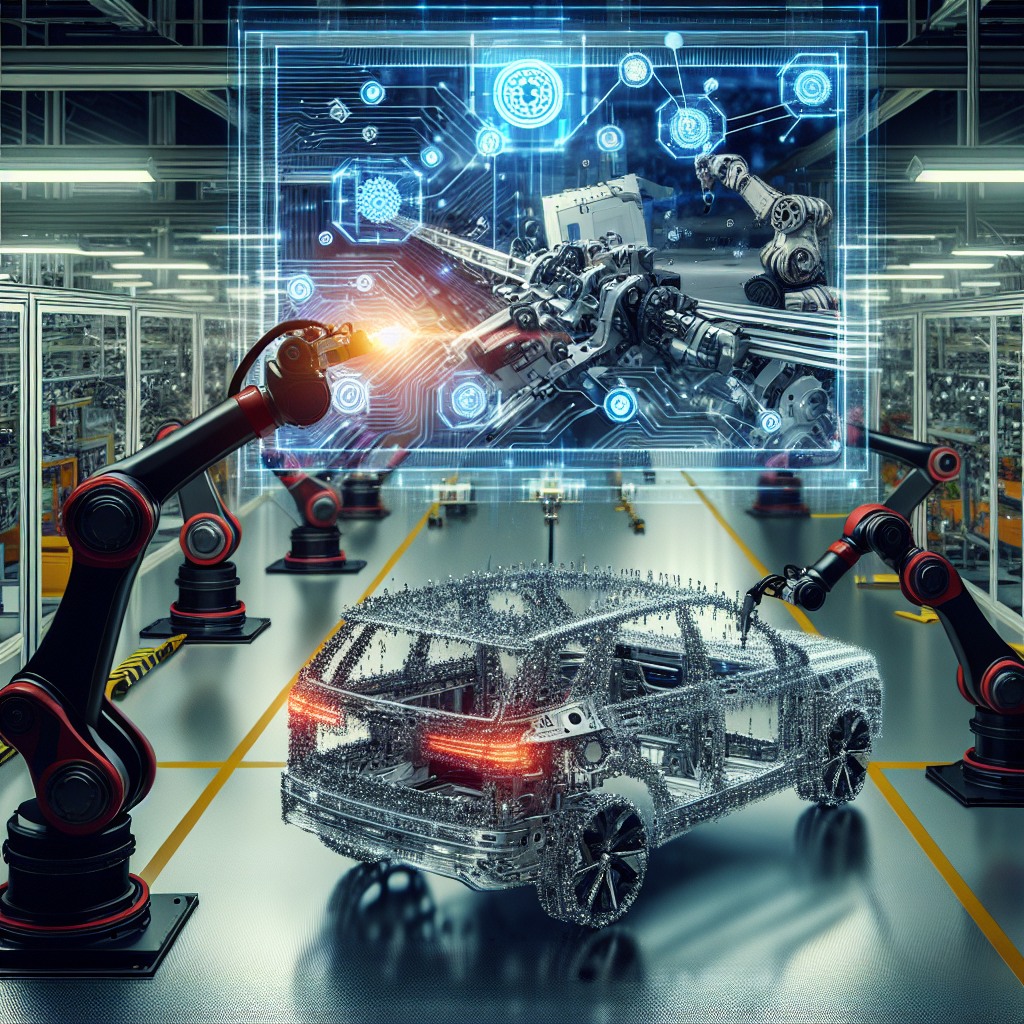Artificial Intelligence (AI) has been revolutionizing various industries, and manufacturing is no exception. AI technologies such as machine learning, computer vision, and natural language processing have the potential to optimize processes, improve efficiency, and reduce costs in manufacturing operations. However, integrating AI into manufacturing processes comes with its own set of challenges. In this article, we will discuss the challenges of integrating AI in manufacturing processes and how companies can overcome them.
One of the main challenges of integrating AI in manufacturing processes is the lack of data infrastructure. AI algorithms require large amounts of data to train and operate effectively. In many manufacturing environments, data is stored in siloed systems or legacy databases that are not easily accessible or compatible with AI technologies. This makes it difficult for manufacturers to collect, clean, and analyze the data needed to train AI models.
Another challenge is the complexity of manufacturing processes. Manufacturing operations involve numerous variables, processes, and equipment that interact with each other in complex ways. AI algorithms need to be able to understand and adapt to these complexities in order to make accurate predictions and decisions. This requires a deep understanding of the manufacturing domain and the ability to integrate AI technologies with existing systems and processes.
In addition, there is a lack of skilled talent in the manufacturing industry who can develop, deploy, and maintain AI solutions. AI technologies are still relatively new, and there is a shortage of professionals with the necessary skills and expertise to work with these technologies. Manufacturers need to invest in training and upskilling their workforce to ensure they have the knowledge and capabilities to leverage AI effectively in their operations.
Furthermore, manufacturers face regulatory and compliance challenges when integrating AI into their processes. AI technologies raise concerns around data privacy, security, and ethical implications. Manufacturers need to ensure that they are in compliance with regulations such as GDPR and that they are using AI in a responsible and ethical manner. This requires implementing robust data governance and security measures to protect sensitive information and ensure transparency and accountability in AI-driven decision-making.
Despite these challenges, there are several ways that manufacturers can overcome them and successfully integrate AI into their processes. One approach is to start small and focus on specific use cases that have the potential to deliver quick wins and demonstrate the value of AI technologies. By pilot testing AI solutions in a controlled environment, manufacturers can identify opportunities for improvement and refine their AI strategies before scaling up to larger operations.
Manufacturers can also leverage cloud-based AI platforms and services to accelerate the development and deployment of AI solutions. Cloud providers offer pre-built AI models, tools, and APIs that can be easily integrated into existing manufacturing systems and processes. This allows manufacturers to quickly access and deploy AI capabilities without the need for extensive in-house development and infrastructure.
Additionally, manufacturers can collaborate with AI vendors, consultants, and research institutions to gain access to the latest AI technologies and expertise. By partnering with external experts, manufacturers can tap into specialized knowledge and resources that can help them overcome technical challenges and accelerate their AI initiatives.
FAQs:
Q: What are some common AI applications in manufacturing?
A: Some common AI applications in manufacturing include predictive maintenance, quality control, supply chain optimization, demand forecasting, and robotic process automation.
Q: How can manufacturers ensure the security and privacy of their data when using AI?
A: Manufacturers can ensure the security and privacy of their data by implementing robust data governance and security measures, encrypting sensitive information, and complying with relevant regulations such as GDPR.
Q: What skills are needed to work with AI in manufacturing?
A: Skills needed to work with AI in manufacturing include data analysis, machine learning, programming, domain expertise in manufacturing processes, and knowledge of AI tools and technologies.
Q: How can manufacturers overcome the lack of data infrastructure when integrating AI?
A: Manufacturers can overcome the lack of data infrastructure by investing in data integration tools, data management systems, and data cleaning processes to collect, clean, and analyze the data needed for AI training and deployment.

